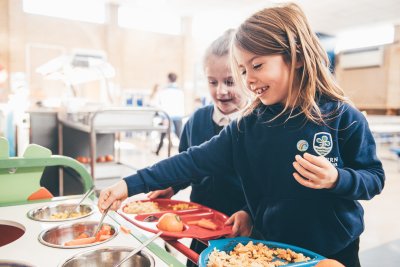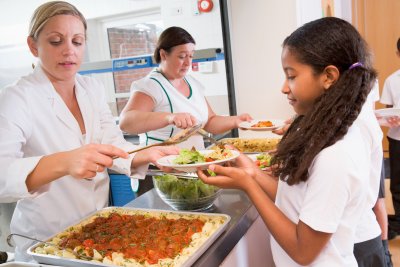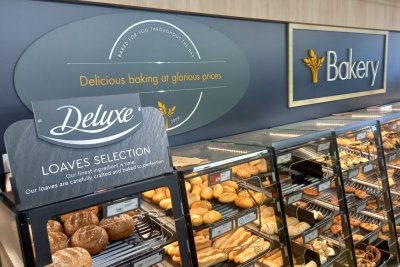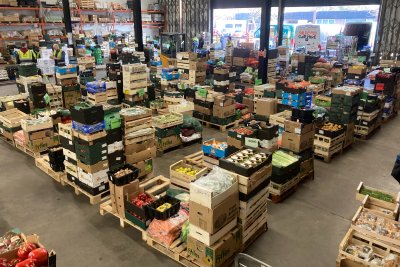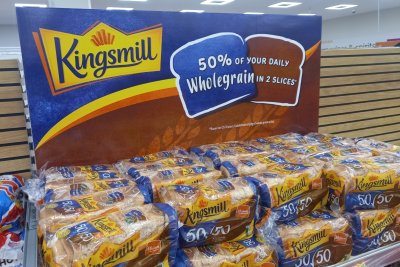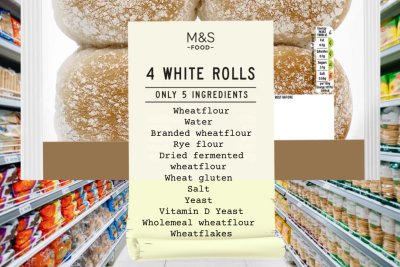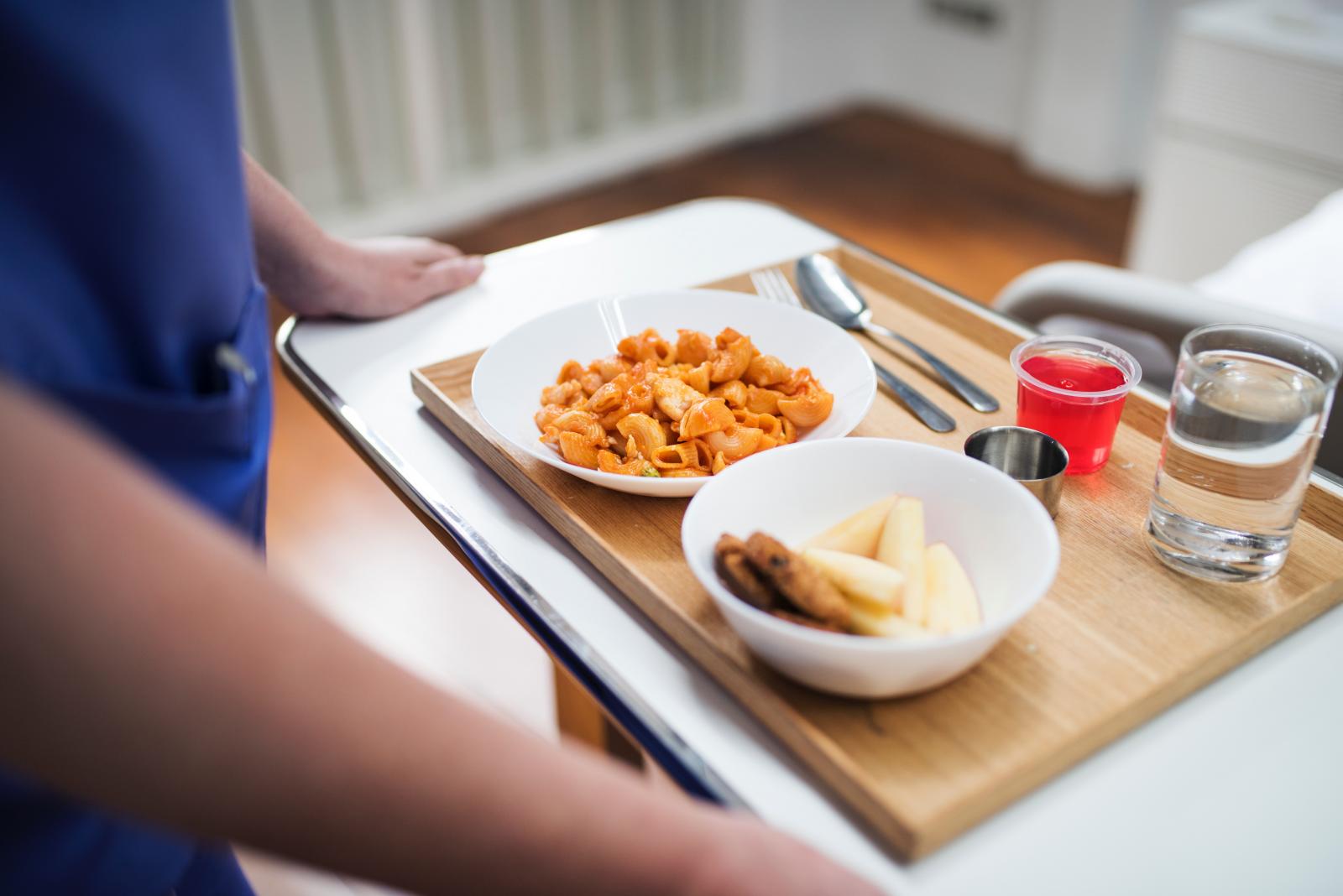 Photo credit: Pexels
Photo credit: Pexels
British pensioners need meals on wheels to beat Covid-19
It’s time to revitalise neglected meals on wheels services; and to redeploy professional cooks, chefs and restaurant staff. Let’s re-open the nation’s kitchens to prepare safe and nutritious meals for struggling pensioners and help them shield through months of Covid-19.
This week, government food parcels have begun to be distributed to the people most vulnerable to Covid-19 coronavirus – 50,000 food parcels at first, ramping up to a possible 400,000 per week over the next month. The national picture is not yet clear, but informal photos taken by warehouse workers and food parcel recipients, shared on social media, show a mixed picture of food quality – sugared cereal, white bread, long-life milk, satsumas and carrots, teabags, snacks, tins of tuna and corned beef.
It’s nutritionally questionable, logistically impressive, but still very early days. Sustain will advocate improvement of this government scheme to meet the specialist needs of people who require much better quality and nutrition to keep body, soul and immune systems in the best possible shape to meet the challenges ahead.
This new scheme is aimed at the 1.5 million people who are medically vulnerable and need to shield by staying at home for 12 weeks. Or at least, for the subset of these who cannot access food by any other means, estimated as 400,000 people lacking the money, family or local support to get the basic necessities they need to be able to shield.
Yet what about the 8.8 million people in the UK who are aged over 70 years old, who have been told that they are also at increased risk from Covid-19? Whilst many may be eligible for he government scheme due to their medical condition, or may have the resources and connections to get through 12 weeks of enforced isolation, lots of older people will inevitably struggle. Many will lack the money, family support, social services, physical ability or local volunteers to help them buy, access or prepare adequate food.
Demand for meals on wheels services is already increasing due to Covid-19:
- The meals on wheels service run by HILS in Hertfordshire told us they are receiving around 100 new referrals per day since social distancing measures were first introduced.
- In Southwark, London, Age UK’s shopping service Food2You, which delivers shopping to older adults, says that referrals have "gone through the roof".
- In Camden and Haringey, the London Independent Living Service (LILS), which provides a ‘more than meals’ service including a welfare check and nutritional screening, has had a 30% increase in demand.
We do not know if anyone has properly tallied how many older people across the UK could fall into desperate food need over the next few weeks. Our friends at the Food Foundation estimate that 860,000 people of the 17.7 million at ‘elevated risk’ from Covid-19 experience ‘low food security’ or ‘very low security’ due to having too little income to be able to afford adequate food. More will struggle to be able to feed themselves due to physical disability, lack of cooking equipment and the impact of poor mental health exacerbated by social isolation. It does not seem unreasonable to estimate that hundreds of thousands of pensioners could soon be struggling to get the food they need to be able to shield at home for three months or more.
This realisation is staggering. We’re facing up to the equivalent of opening a national care home for hundreds of thousands of older people and asking them to stay in their rooms for three months, waiting for meals to materialise. All without a clear plan for how the catering service will be provisioned, equipped, staffed or paid for.
Where can we look for solutions, and fast? Even if the government food parcel scheme were to be extended to provide for vulnerable pensioners, three months is a very long time to get by on white bread, tinned meat and the occasional satsuma. Ready-prepared meals in packaging easy for arthritic hands to open are surely a better, healthier and more humane option. Additionally, regular visits from volunteers trained to deliver food safely and to ask the right questions could also provide vital social contact and early problem-spotting that enable social services to intervene in good time. Meals on wheels has always been about more than just the food.
Across this country there are still some meals on wheels services (even despite the drastic decline in such services over recent years due to austerity) that could be made Covid-safe and expanded to meet local need, with food delivered to the doorstep by an enthusiastic army of local volunteers. There are many examples of community enterprises already addressing food poverty locally, motivated to provide good food and overcome isolation. They could be helped with money, food supplies and professional support to expand or replicate.
Still, that deafening figure of "hundreds of thousands" must surely ring painfully in our ears. Where else can we turn?
Let's take inspiration from the leadership shown by Leon Restaurants, which is fundraising with University College London Hospitals Charity UK for £1m to provide one hot meal per day for our NHS workers.
Well, there are also thousands of well-equipped professional kitchens that have only very recently been mothballed due to school, restaurant, canteen and hotel closures. There are tens of thousands of professional cooks, chefs, food entrepreneurs, restaurant staff and hoteliers out of work, many of them with the skills of fast, flexible, safe and delicious food preparation. Many have food safety certificates and a keen appreciation for kitchen organisation, staff management, allergens, hygiene, flexible recipes, food quality and customer care. They already have connections to environmental health teams who could help assure safe facilities and operations. There are dietitians in the NHS and care home sector who could advise on suitable nutrition, recipes and portion sizes. There are farmers and food producers desperate to find outlets for their food and to maintain precious supply chains at a time when so many foodservice contracts have collapsed. We're told that the Briish Army is on hand if we need drivers.
Can’t we redeploy these people, premises and skills to rescue the nation’s most vulnerable pensioners? As a nation, can't we fund this as a priority to keep our elders well fed?
We would need foodservice leaders, food professionals, coordination, advice, catalyst funds, logistics professionals, food supply brokerage, underwriting of kitchen insurance, suspension of parking fines for meals-on-wheels delivery services, good deals on bulk-buy packaging, reliable advice and training in Covid-safe food preparation and delivery...
We are already hearing inspiring examples of local people and councils picking up the challenge – and the chopping boards and ladles – to fix this enormous food deficit. Many are already working hard to try and meet increased need caused by the Covid-19 crisis, as reported above. Communities across the UK have also been responding to the needs of others at impressive scale and pace:
- Covid Mutual Aid groups have been set up, which self-organise to help neighbours with essential shopping.
- Some school kitchens (no longer being used for school meal provision) have been repurposed to feed vulnerable adults in the community, such as an example in Washingborough.
- Liverpool Council reports impressive plans to provide a cooked meal service for vulnerable residents (web link to come).
- Some pubs are making affordable meals available to local older residents, such as the Duke of Buckingham in Portsmouth.
- Community food organisations have also reoriented their work to what is most needed, for example Made in Hackney in London and The Bevy in Brighton.
Our research is a work in progress. Here’s what we have learned so far. It’s important to:
- Identify and quantify the need, and work out what’s most appropriate in local areas.
- Recognise that some areas have decent meals-on-wheels services. Find out what they need and provide it; ask them if they can expand and help them to do so.
- Recognise that some areas have no meals-on-wheels service. See if neighbouring services can help or expand, or if new provision is needed.
- Identify suitable kitchen facilities (secondary schools, hotels and larger canteens, restaurants or chains would be a good place to start) and find out if these could be used for meals on wheels preparation; quickly overcome barriers such as kitchen insurance.
- Connect with associations of foodservice professionals who could help match cooks and chefs with premises.
- Connect with farmers, fishers and suppliers seeking outlets for produce, especially those who have recently lost foodservice contracts.
- Identify good models, write them up quickly, and share widely for replication.
- Start fundraising with (in this order) government, local authorities and sympathetic charitable funders (and crowdfunding if there is local wealth – but remembering that this service will be in and for predominantly lower income communities who can't manage without financial support).
- Connect up; share insights, barriers, solutions, data and good practice. Link with local authorities and Local Resilience Forums who are establishing 132 local information and coordination hubs across the country to help facilitate the emergency response.
Hundreds of thousands of pensioners could be depending on us. We are all key workers now.
We are reaching out to professional groups and associations interested in securing adequate food for vulnerable older people who are shielding from Covid-19. We want to find out what is happening, what is needed and to develop shared recommendations to government, emergency planners, local authorities, Local Resilience Forums and funders. Get in touch if you would like to advise, need organisation-level support or to get involved: morven@sustainweb.org.
Apologies, but we do not have the capacity to respond to enquiries from individuals seeking support. If you are medically especially vulnerable to coronavirus, there are links to opportunities for support here.
Many thanks for material in this article are due to Morven Oliver-Larkin and Simon Shaw of Sustain’s Food Poverty project and London Food Poverty Campaign, who have been undertaking research on how local authorities and community groups are helping older and vulnerable residents access adequate, dignified and socially connected food to help get them through Covid-19.
Coronavirus Food Alert: Sustain's work on food resilience in the COVID-19 coronavirus pandemic.We are helping secure food for vulnerable people and supporting local emergency responses.
Sustain
The Green House
244-254 Cambridge Heath Road
London E2 9DA
020 3559 6777
sustain@sustainweb.org
Sustain advocates food and agriculture policies and practices that enhance the health and welfare of people and animals, improve the working and living environment, promote equity and enrich society and culture.
© Sustain 2025
Registered charity (no. 1018643)
Data privacy & cookies
Icons by Icons8
